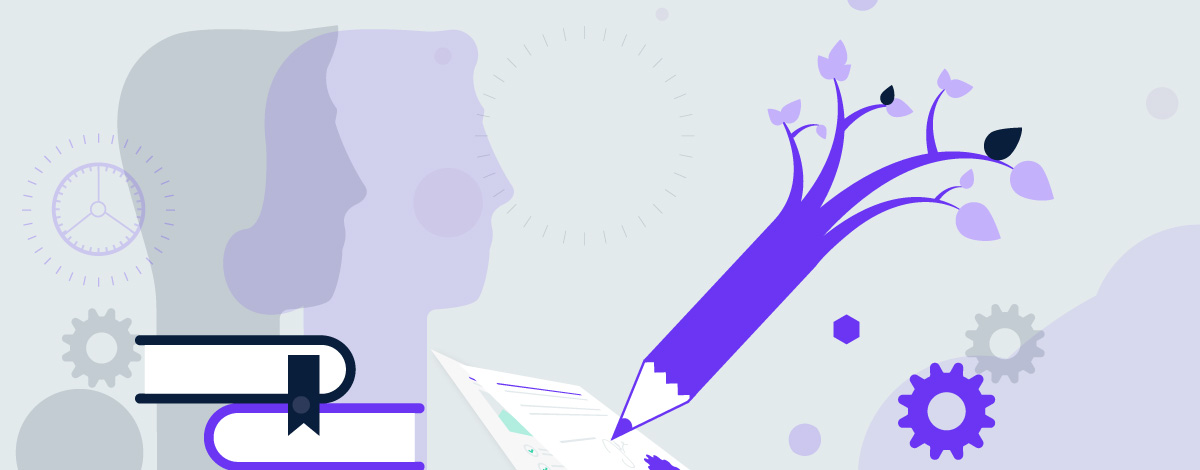What counts as CPD for AHPs?
10 Dec 2021Resource
Whether you are just beginning your career as an AHP or are a seasoned professional, you will most likely be aware your CPD must include a mixture of different types of learning. As a registered Allied Health Professional, HCPC requires you to carry out at least two different types of learning activity, although in practice you will most likely do much more than this.
The types of CPD can include:
- Work-based learning - e.g. reflecting on experiences at work, considering feedback from service users, or being a member of a committee.
- Professional activity - e.g. being involved in a professional body or giving a presentation at a conference.
- Formal education - e.g. going on formal courses or carrying out research.
- Self-directed learning - e.g. reading articles or books.
But what does this look like in reality? There could be many things you are already doing day-to-day that can count towards this mixture of activities, so here are just a few suggestions to get your CPD juices flowing.

Carrying out training and educational supervision
Being able to provide supervision is especially important and predicted to be in demand at the moment given changing and extended roles, uncertainties, higher levels of stress, and increased remote delivery due to the pandemic.
Learning professional or business-focused skills
Depending on what is required of your position, these could be gained from performing roles such as Regional Advisor or Educational Supervisor for AHPs. If you run your own practice, they could centre around business planning, writing, or reporting skills that could apply to your field of work.
Reading tweets by any relevant associated bodies
For example, Royal College of Occupational Therapists, The Chartered Society of Physiotherapy, The Association of Speech and Language Therapists in Independent Practice - ASLTIP, The College of Paramedics and The British Dietetic Association.
Following industry influencers on social media
Such as Rachel Moses (@AHPLeader).
Reading new research papers posted by relevant research bodies
You are likely to be able to find current and back issues of journals relating to your specialism available online - for example, the British Journal of Occupational Therapy, the Physiotherapy journal or the open access journal Perioperative Medicine.
Google Scholar can also be a good source of new research - for example, this paper on “Strengthening Nursing, Midwifery and Allied Health Professional Leadership in the UK - a realist evaluation” or this journal article on “Frontline Allied Health Professionals in a Tertiary Children’s Hospital: Moving Forward Research Capacity, Culture and Engagement”.
Listening to podcasts from your profession
There are plenty out there relating to all areas of AHP practice. For example, OT and Chill, the First Case Operating Room Podcast, Physio Edge or The Speech and Language Therapy Show.
Watching any relevant TV documentaries
These could be related to your specific healthcare profession, or may tie in with other skills you would like to improve on.
Listening to a topical debate or documentary on the radio
Catch up with debates and documentaries through BBC Sounds. There are often programmes of AHP interest, as well as career and soft skill-focused topics.
Watching live and pre-recorded videos on YouTube or other video sharing platforms
Many webinar providers will make their presentations available for viewing after the event, so keep an eye out for these great free resources.
There are a wide range of healthcare-related talks on the TEDx Youtube channel too.
Exploring the many online training courses available through health boards, trusts, universities and other learning providers
For example, RCSLT Events, the College of Paramedics, the British Association of Art Therapists or the RCOT's approved learning for CPD.
Udemy has a range of paid and free online courses focusing on healthcare, leadership and career development.
A number of universities provide short courses and modules as CPD.
Reading a newspaper article or blog
Topical news stories often give opportunities for reflection on your own practice.
Reflecting on your experience after being involved in some industry campaigning
For example, have you engaged with or generated ideas for AHPs Listen, the #OTsForEquity campaign, the CSP's campaign #Righttorehab, or Giving Voice?
Being mentored or mentoring others
You should be able to find out more from your associated body, for example the RCSLT, the CODP or CSP Mentoring Platform.
The Elizabeth Casson trust runs a mentoring programme and can direct practitioners to a range of different OT and leadership mentors.
You can check out our guide on how to find a mentor too.
Improving your day-to-day skills
This could include things like enhancing your IT and digital skills.
Reflecting on an article published in an industry-specific magazine
This can be a good way to keep up to date on industry topics and trends. For example, British Journal of Occupational Psychology, Frontline for physiotherapists or RCSLT's The Bulletin.
Where will your CPD journey take you next?
If any of these have jogged your memory, or inspired you to start consciously tracking your development activities, then make sure you diarise some time to log and reflect on them.
Whether that’s in a fancy notebook, a spreadsheet, or a CPD tracking app like Julia, by capturing what you are doing regularly, your CPD history will build up in no time!
Please let us know on Twitter if you have any additional suggestions for activities and resources and we’ll update our list so everyone can benefit.
Please note that Julia is not affiliated with any external content nor is it endorsing any particular resources as successful CPD practice.
Julia helps you record, reflect, and report on your CPD through our website and app.
It's an easy way for you to stay on top of your CPD. Sign up for a 14 day free today.